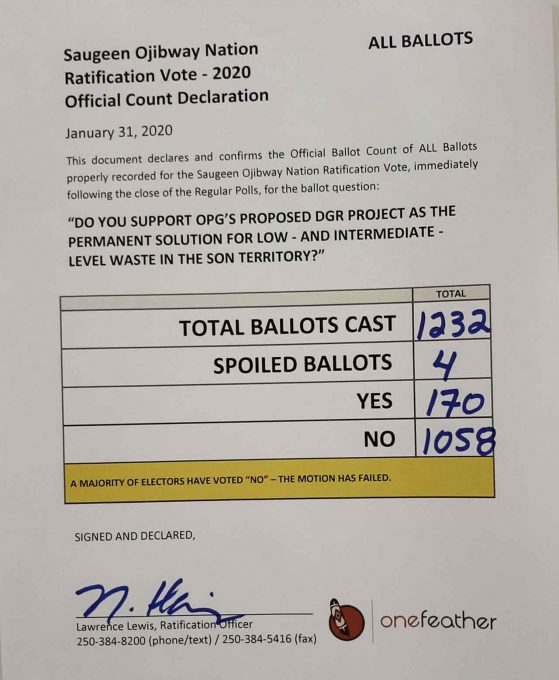TORONTO – News – The Saugeen Ojibway Nation, comprised of the Chippewas of Nawash Unceded First Nation and the Chippewas of Saugeen First Nation, and whose territory (Saukiing Anishnaabekiing) encompasses the entire Saugeen (Bruce) Peninsula and extends southward to the Maitland River and eastward to the Nottawasaga River, have partnered with the Canadian Nuclear Isotope Council (CNIC) to advance reconciliation in a way that engages a First Nations community in securing critical infrastructure key to Canada’s economic and strategic strength in the isotope sector.
Today’s announcement reflects the CNIC’s commitment to safeguarding the continued availability of isotopes, ensuring its public policies are risk-informed and science-based and support the highest levels of public health and safety,
“People in Canada and around the world rely on the continuous availability of medical isotopes. For more than 60 years, Canada has been a leader globally in the research, development, and production of medical isotopes and radiopharmaceuticals,” said CNIC Chair James Scongack. “This has meant that Canada has been a global leader in the fight against cancer and keeping our hospitals clean and safe.
“This is a tremendously important partnership with the SON that will see us join forces in the fight against cancer worldwide as we advocate for continued Canadian innovation and leadership to work in developing new isotopes.”
“Many of our community members have been impacted by cancer in some way, and I believe that working with the CNIC on the next generation of life-saving isotopes in the SON Territory is an opportunity for us to have a positive impact on the people and families touched by cancer,” said Greg Nadjiwon, Chief of Chippewas of Nawash Unceded First Nation.
“By leveraging this partnership with the CNIC, we can establish something of lasting and sustainable benefit for our communities and our people, while contributing broadly to Canada’s economy and our role as a global supplier of isotopes,” said Lester Anoquot, Chief of the Chippewas of Saugeen First Nation.
The announcement today comes a few days after a vote was held by the Saugeen Ojibway Nation on storing low- and intermediate-level nuclear waste.

Throughout 2019, the SON has been engaged in very productive conversations with the Government of Canada on the importance of Canada continuing its leadership role in the isotope sector as the public- policy priorities for government including reconciliation, Indigenous economic and community development, innovation and creating new highly-skilled jobs in Canada.
The SON also recently announced with Bruce Power an agreement to jointly market new isotopes in support of the global fight against cancer while also working together on creating new economic opportunities within the SON Territory by establishing new isotope infrastructure. The agreement will leverage a project announced by Bruce Power in 2019 to produce Lutetium-177 – used to treat prostate cancer – with production starting in 2022 following regulatory and other approvals.
By working together on the Lutetium project, Bruce Power and SON will engage in identifying joint marketing opportunities while working with the government to leverage this opportunity and create sustainable economic benefits. Most importantly, it would be a tool of reconciliation in a way that engages a First Nations community in securing critical infrastructure key to Canada’s economic and strategic strength in this area.
Looking ahead, the CNIC will remain focused on ensuring that Canada continues to be a world leader in the production of life-saving isotopes by bringing awareness and supporting long-term policies at the domestic and international levels that will save countless lives and support health-care innovation for decades to come.
About the Canadian Nuclear Isotope Council
The CNIC is a coalition of science, health care, and nuclear sector organizations to ensure Canada remains a world leader in the production of life-saving isotopes by bringing awareness and supporting long-term policies at the domestic and international level that will save countless lives and support health-care innovation for decades to come. To learn more about the CNIC.






